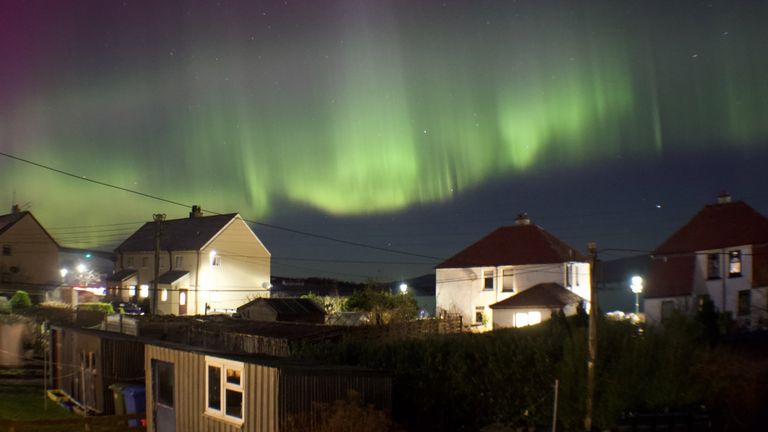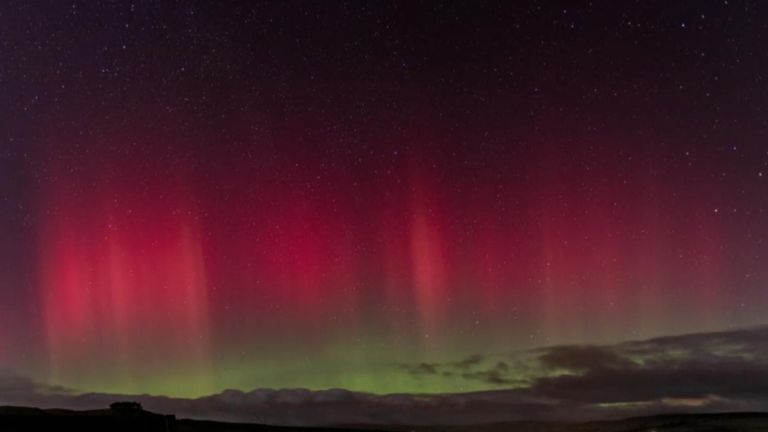The Northern Lights were seen over the UK for a second night in a row on Monday.
The spectacle, also known as the Aurora Borealis, was visible from parts of southern England including Dorset and Devon.
Perfect conditions during the day before meant they were visible as far south as Cornwall on Sunday.
One easyJet flight from Iceland to the UK made a 360 turn over the North Sea to allow passengers on both sides of the aircraft to see the spectacle.
“Big thanks to the easyJet pilot of EZY1806 from Reykjavik to Manchester who did a 360 fly by mid-flight to make sure all passengers could see the incredible Northern Lights,” one passenger tweeted.
“We are pleased that the captain on our flight from Reykjavik to Manchester yesterday evening was able to perform a controlled manoeuvre in order to allow passengers to witness an amazing display from the air of one of nature’s greatest sights, the Aurora Borealis,” an easyJet spokesperson told Sky News.
“Our crew will always go above and beyond for our customers and we’re delighted to have been able to share this special view of the Northern Lights with them.”
The pilot of a Finnair flight also conducted a similar manoeuvre.
The Northern Lights are typically best seen in high-latitude regions closer to the Arctic such as in Scandinavia.
In the UK, only Scotland and parts of northern England are usually lucky enough to see the aurora.
Yesterday the Met Office said: “Strong solar activity means another chance to see the Northern Lights tonight.
Read more:
Northern Lights seen as far south as Cornwall
“Northern Scotland is favoured to see the Aurora overhead, but sightings closer to the horizon are possible as far south as southern Britain – *if* you have clear skies.”
On Sunday the meteorological office said a “coronal hole high speed stream” had combined with “a rather fast coronal mass ejection” leading to sightings across the UK.
What causes the Northern Lights?
According to the Royal Museums Greenwich, the Aurora Borealis is caused by particles from the Sun colliding with atoms and molecules in the atmosphere.
The wavy patterns of light are caused by the lines of force in the Earth’s magnetic field, while the different colours are made by different gasses – the green is characteristic of oxygen, while the purple, blue or pink are caused by nitrogen.
The lowest part of an aurora is usually about 80 miles from the Earth’s surface, but the top could be many hundreds of miles above Earth.


